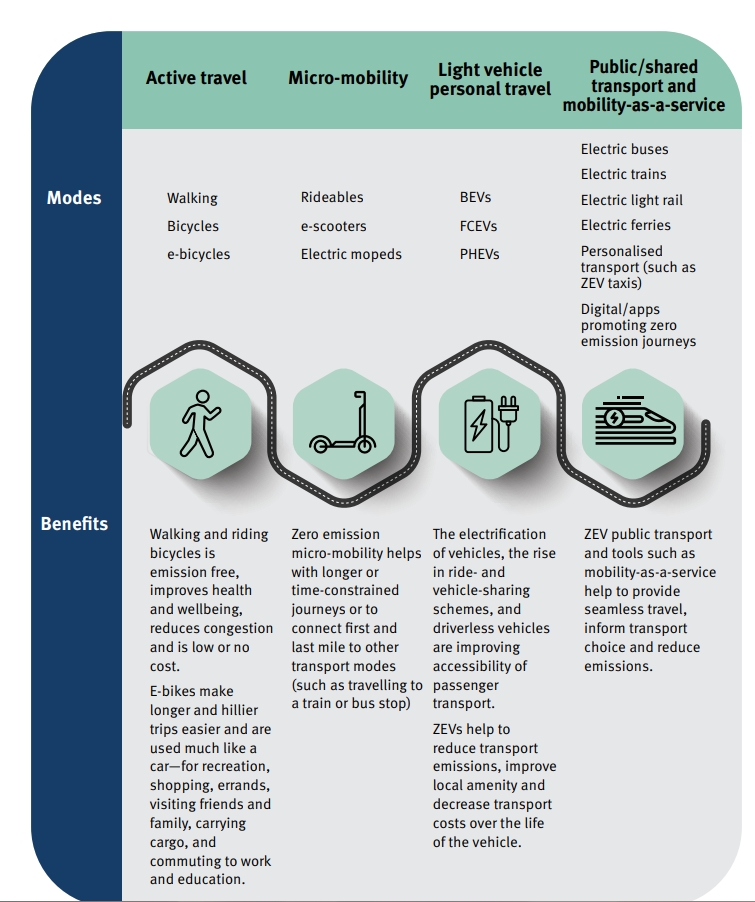Changing the way we travel
In Queensland, there are many zero emission transport modes which individuals, businesses and industry can choose from to increase emission-free travel choices in our everyday lives.
We recognise that there is not a one size fits all transport solution, instead different transport modes and vehicle needs for our diverse regional, rural and urban environments.
As new technologies emerge, people are changing their purchasing and personal transport habits by:
- sharing personal vehicles
- using ride sharing services
- moving to e-bikes and rideables, such as e-scooters and other forms of micro-mobility
- using drones for freight and passengers
- using automated vehicles
- using in-vehicle tracking and monitoring systems.
See how you could change your travel habits to contribute to emissions reduction and experience other social, environmental and economic benefits.

Active travel | Micro-mobility | Light vehicle personal travel | Public/shared transport and mobility-as-as-service | |
Modes | Walking Bicycles e-bicycles | Rideables e-scooters Electric mopeds | Battery Electric Vehicles Fuel Cell Electric Vehicles Plug-In Hybrid Electric Vehicles | Electric buses Electric trains Electric light rail Electric ferries Personalised transport (such as zero emission vehicle taxis) Digital/apps promoting zero emission journeys |
Benefits | Walking and riding bicycles is emission free, improves health and wellbeing, reduces congestion and is low or no cost. E-bikes make longer and hillier tripes easier and are used much like a car – for recreation, shopping, errands, visiting friends and family, carrying cargo, and commuting to work and education. | Zero emission micro-mobility helps with longer or time-constrained journeys or to connect first and last mile to other transport modes (such as travelling to a train or bus stop). | The electrification of vehicles, the rise in ride- and vehicle-sharing schemes, and driverless vehicles are improving accessibility of passenger transport. Zero emission vehicles help to reduce transport emissions, improve local amenity and decrease transport costs over the life of the vehicle. | Zero emission vehicle public transport and tools such as mobility-as-a-service help to provide seamless travel, inform transport choice and reduce emissions. |
Find out more about: